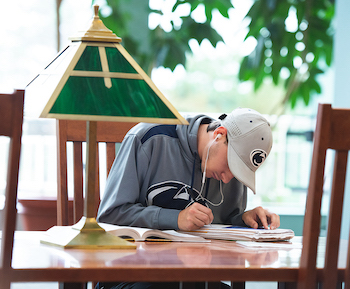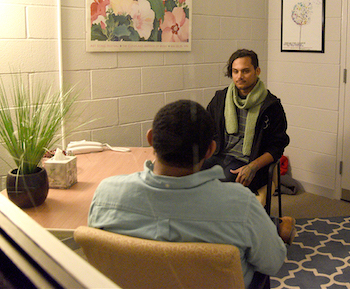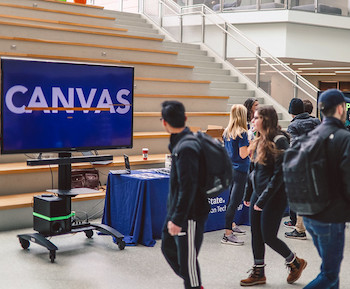Subject
- Business and the Liberal Arts
- Engineering
- Information Sciences and Technology
-
Math and Statistics
- Math
- Statistics
- Understand the Math This website offers clear and engaging mathematics instruction. The resources offered include YouTube videos with accompanying guided notes, comprehensive course notes, blogs covering mathematics learning strategies and practical applications.
- Understand the Math YouTube Channel
- Public Speaking, Presentations, and Interviews
- World Languages
Other Information
Office Hours
If you are having trouble in a class, the first stop should be to visit your instructor during office hours (found on your syllabus for the class). By seeking extra help from the instructor, you will receive one-on-one instruction as well as form a relationship with the instructor. If you need more help, your instructor may know of a junior or senior who might be willing to meet with you for tutoring sessions.
Office hours are times of the week that instructors or their assistants reserve to be available to help students and get to know them better. You may choose to visit only for a few minutes with a quick question or to remain longer for more involved concerns.
Extra Advice
The following is adapted from resources found on University Parent.
Check Bulletin Boards: Physical and virtual bulletin boards boast student services for tutors. Facebook groups, college networks and walls in the HUB or dorms will provide contact information for students and teachers' assistance that provide tutoring services.
Meet with the Tutor First: If you contact a tutor, before committing for a semester, you should meet with him or her to discuss your needs and the tutor;s availability. In addition, you should be aware of personality conflicts and teaching methods that will impact success. Building rapport will be important for being committed to the tutoring process.
Tutoring is Not a Substitute for Class: On average, tutoring might be one hour, once a week. During finals or midterms, the time might increase. This will supplement going to class, reading and studying throughout the week. Be sure to have specific questions. Dialogue is an important part of tutoring. The tutor will not teach you for an hour; rather, he or she will help you ask questions, find answers and explore the subject material. The more prepared you are for each session, the more you will get out of it.
Come Prepared: You should bring class notes, textbooks, syllabi and other materials, like a calculator, to all tutoring sessions. You'll be expected to turn off your cell phone, and also need to decide on a quiet place to meet where friends won't be stopping by to interrupt the session.









